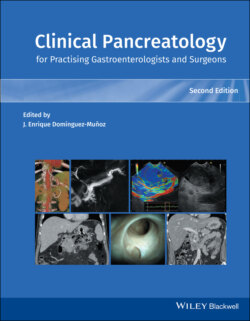Читать книгу Clinical Pancreatology for Practising Gastroenterologists and Surgeons - Группа авторов - Страница 125
Pancreatic Encephalopathy and Posterior Reversible Encephalopathy Syndrome
ОглавлениеPancreatic encephalopathy comprises a wide spectrum of neuropsychiatric symptoms found mainly in severe AP that include disorientation, restlessness, delusions, unconsciousness or slowed reaction, apathy, and depression [53]. Pathogenesis is multifactorial [53], but in patients with chronic alcoholism, vitamin B1 deficit leading to Wernicke encephalopathy must be excluded. Pancreatic encephalopathy has no specific treatment. Posterior reversible encephalopathy syndrome is characterized by symptoms such as headache, altered mental status, visual changes, seizures, and occasionally other focal neurological signs, associated with typical radiological findings that include symmetrical white matter edema in the posterior cerebral hemispheres, particularly the parieto‐occipital regions, most often visualized on magnetic resonance imaging [54,55]. The treatment is symptomatic and the prognosis is usually good, with complete reversal of symptoms [54].
